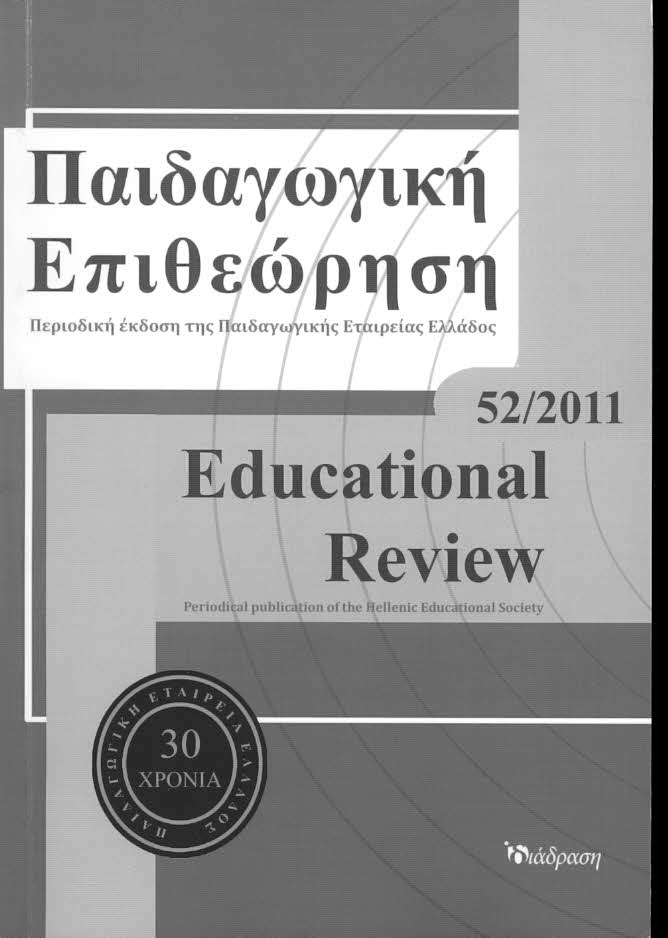Παιδική κακοποίηση: απόψεις Ελλήνων και Κυπρίων εκπαιδευτικών
Main Article Content
Περίληψη
The aim of this study was to explore teachers' self-reported attitudes and knowledge of the symptoms and different forms of child maltreatment, reporting incidents, personal perceptions toward the effect of television and internet, attitudes toward corporal punishment, and their beliefs about the prevention of the phenomenon.
The sample consisted of 105 teachers (aged 25-60 years) from 12 state primary schools in one county in the South East of Greece and one county in South of Cyprus, with differentiated socioeconomic status. Attitudes and knowledge about child maltreatment were assessed with a self-reported 19-items questionnaire that was developed by the research team.
Most teachers reported being aware of the signs and symptoms of child maltreatment, as well as reporting procedures. They also reported that television, internet and internet cafe contribute in the emergence of the violent behavior. They believe father is the more violent figure in the family. More teachers considered that the family house is the place where the most cases of violence take place. They supported that the most common forms of child abuse are the psychological and physical abuse. There arc differentiations in the opinions of Greek and Cypriot teachers.
